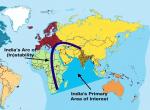Bangladesh: No justice in extrajudicial killing
After a murder accused was killed in an encounter with the police earlier this month, Bangladesh’s apex court made clear that it did not approve of such ‘extrajudicial’ killings. The judges said, “We do not like extrajudicial killings. Maybe the law enforcement at times has no alternative but to carry this out in order to save themselves. But the law enforcement including the police must be more careful in this regard. The rights given by the law must be ensured.”
Echoing the opinions of the judges, Aiman R Khan, an advocate in the Dhaka Judges Court, wrote in The Daily Star, “Bringing extrajudicial killings to a halt is a necessity for good governance. If people continue to be deprived of all judicial proceedings and killed in ‘gunfights’ and ‘shootouts’, people’s reliance and trust in the justice system can never be restored”. Journalist Syed Badrul Ahsan brought out a different aspect. Writing in the Dhaka Tribune, he noted that while many cheered the end of a man who had killed in broad daylight, they ignored “the question of how many godfathers and patrons of crime breathe a huge sigh of relief when the criminals they train and send out to commit murder and mayhem are silenced before they can spill the beans”.
Pakistan: Putting out the begging bowl, again
On July 3, the International Monetary Fund approved a three-year six billion dollar loan to shore up Pakistan’s collapsing economy. The Dawn noted in its editorial that this was the 13th time Pakistan was receiving such a financial package. Each package has carried the same two conditions, (“macroeconomic adjustment... followed by structural reform”) and each has played out in the same way (“the government takes the money, imposes massive hardships on the population through austerity and ‘demand compression’, then reneges on its commitments for structural reform through a patchy implementation, at best”). The editorial noted that Pakistan has “spent more time inside than outside Fund programmes. And now we are gearing up for one more round”.
Writing in the same newspaper, Pakistan’s former ambassador to the UN, Munir Akram, took a more positive stance. He noted that Islamabad had negotiated a better deal for itself than what had been initially offered, and hoped that “the IMF programme should be the start of a process of building durable solutions to Pakistan’s systemic economic challenges” which include “structural reforms”, “improved economic governance” and “massive domestic and foreign investment”. The Nation in its editorial also took a similar line, “The path forward is difficult and strewn with hardships for the masses, but as long as the government keeps going forward with austerity, sustainable development, and an uncompromising attitude towards increasing the tax net, it can make sure we never have to break out the begging bowl again”.
Nepal: Tourism boost or extravagant expenditure
Less than a fortnight after it was announced that Kathmandu would host the International Indian Film Academy’s (IIFA) award ceremony this year, the Government of Nepal back-tracked from its decision, in response to protests about the exorbitant costs this would entail. In its editorial, the Kathmandu Post noted that: “For Nepal, Rs 1 billion can go a long way, especially in important underfunded sectors such as education. Even for the all-important goal of promoting tourism for Visit Nepal 2020, the government can surely do better with the money by applying proven strategies, instead of creating photo opportunities with Bollywood stars for our leaders”. The newspaper also pointed out when Sri Lanka hosted the IIFA awards back in 2010 with a similar goal of attracting tourists, it was disappointed; the event “barely provided any long-term benefits, failed to deliver on the star power publicity promised, and was controversial from the get-go”.
Writing in the same paper, Nepali translator Dinesh Kafle, however, argues that some government ministers’ efforts to ascribe the protest to “an anti-India or anti-Bollywood sentiment” was “an intentional fallacy”. He also opined that the parliamentary committee’s claim about the awards being ‘an attack on Nepali sovereignty and independence’ was “bizarre”; and that the outrage was not against IIFA but “against our own government that is going out of its way to spend millions of rupees on a private entertainment show targeted largely for a foreign audience with hardly any reward in sight”. Kafle writes, “Common sense demands that we first build a robust tourism infrastructure that then could depend on a Bollywood entertainment show to tell the world how wonderful Nepal is as a tourist destination”.
Sri Lanka: Debating the death penalty
On July 5, Sri Lanka's Supreme Court stayed the execution of four convicted drug dealers after several petitions were filed opposing capital punishment. Sri Lanka has not carried out a death sentence in four decades, but last month, President Maithripala Sirisena signed the death warrant to hang the four convicts. This has led to protests at home, and several admonishments from abroad.
In its editorial, the Sunday Observer noted that though the issue had become the “personal crusade” of the President, “there is no harm in having a healthy discussion” and that, instead of taking unilateral action, a public debate could have been organised to “assess the suitability of reintroducing the death penalty”. Writing for the Daily Financial Times, Dr. Nihal Jayawickrama pointed out that if Sri Lanka breaks its 43-year moratorium on executions, “economic concessions granted by the EU... will be withdrawn” and Colombo’s extradition requests may be refused because of the “unpredictability of the sentencing policy”. He also argued that since “the most effective deterrent to crime is the certainty of detection”, the focus of the government should be on “competent policing, efficient prosecution, and expeditious trial”.
On similar lines, Asgar Hussein, writing in The Island, pointed out that apart from the fact that “a professional, efficient and independent criminal justice system work far better than the gallows”, the death penalty will only serve to “further brutalize a country that has already seen so much hatred and violence”.

_0.jpg)








Post new comment